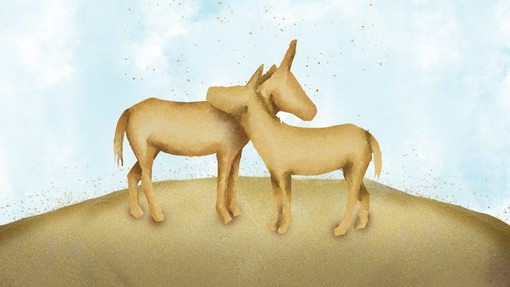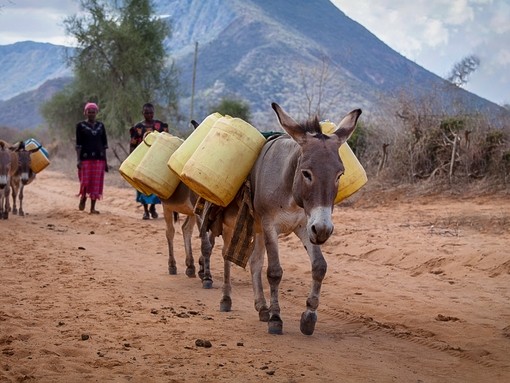
Throughout history donkeys have been by our side.
Donkeys have been a cornerstone in human existence and they are still vital to communities today, ferrying water, food, and crops. They are highly intelligent creatures, sociable and calm, capable of independent thinking and decision-making. They are strong and won’t do something they consider unsafe, which makes them a great, trusted companion. Donkeys are, quite simply, amazing.
There are over 60 million donkeys and mules worldwide and sadly many don’t enjoy a good quality of life. This happens due to a lack of education, a lack of understanding of what good care looks like, the hardships of day-to-day life facing families and communities across the world and in some cases, cruelty. And when those families can no longer depend on their donkeys, more often than not it’s women, children, and particularly girls who feel the impact most. Everyone’s lives are destroyed.
More recently we’ve seen the horrific impact of the illegal and unsustainable donkey skin trade. Donkeys across the world are being stolen from families that rely on them, slaughtered and skinned. All because the gelatine in their hide is a key ingredient in a traditional Chinese medicine called ejiao. With a growing middle class, demand for ejiao has skyrocketed, and now it’s big business.
Here at The Donkey Sanctuary, our work transforms lives. By working directly with our herd in sanctuary care, donkey owners, and with communities around the world we have become the world authority on donkey welfare. We provide lifesaving veterinary care, we train vets, and we educate current and future donkey owners, directly and indirectly via freely available online resources in over 50 countries. At our Sidmouth headquaters we deliver donkey-assisted activities to support children and adults with special educational needs or those suffering from chronic illness. And, of course, we provide sanctuary to donkeys who have been neglected, abused, and abandoned.
Donkey welfare strengthens livelihoods
In rural areas, donkeys are often used in farming and as transportation: they pull ploughs and carts, deliver goods to market, and collect water from wells. In urban areas, they are mainly used in construction, transport of people and goods, and refuse collection. By enabling their owners to participate in work, they boost economic capacity in a region. So much so that in Ethiopia there is a saying: ‘If you don’t have a donkey, then you are a donkey.’

Compassion for donkeys means access to water
Millions of people across the world spend several hours every day collecting the precious resource of safe, clean water. Livestock production is also dependent on ready access to water. The simple act of donkeys carrying water reduces the time required to access it.
Strong donkeys build resilience
The extra income generated through working animals also allows people to earn money, reinvest in growth, and fund access to education. Donkeys’ ability to transport goods increases access to quality nutrition in the community through local food markets. Donkeys are often the most valuable asset people own and the largest expense if they need to be replaced. Protection of animals is therefore a key consideration within disaster preparedness and resilience.
Healthy donkeys mean more productive farming
As well as working donkeys increasing productivity in the field, they enable farmers to go ‘the missing mile’ to market, often in otherwise inaccessible areas. This ensures farmers can turn their crops to cash while allowing the community to access more diverse foods.
Healthy donkeys empower women
Evidence shows women often rely on working animals to do tasks they would otherwise have to perform themselves, from collecting water and tilling land to transporting goods. By enabling women to be economically active, they also increase their community status. This economic capability can prevent the worst forms of destitution for lone women, whether working in rural or urban settings.
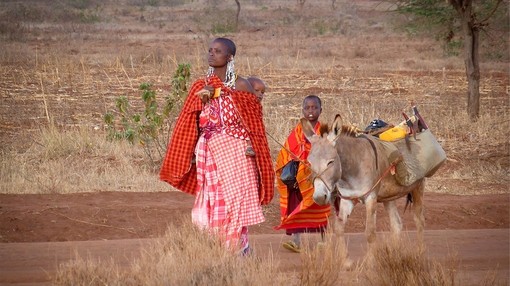
Caring for donkeys enables education
Donkeys provide additional income to enable access to education for children. By carrying out labour otherwise done by people, they also help parents give children the care and attention they need at home.
Donkeys teach us, too
These social and intelligent sentient beings have a unique capacity to bond with each other and with humans, their heart rates even synchronise with those with whom they come into contact. This is evidenced by our donkey-assisted activities (DAA) programme for vulnerable children and adults. While our staff facilitate the programme, it is the donkeys who do the work — their bond is independent, intuitive, and autonomous; their connection with people both teaches us about them and teaches us about ourselves. Children and adults in need learn from the physical and emotional experience with these exceptional creatures.
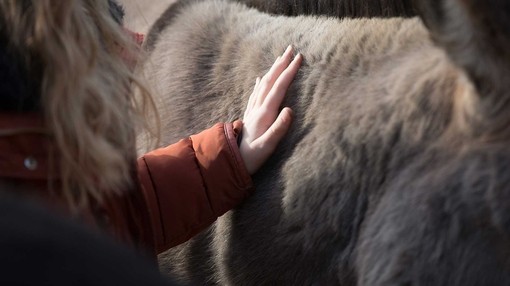
Support our work
Read more
Millions of donkeys are slaughtered for their skins every year. Learn about the causes, impacts and the campaign to Stop the Slaughter here.
Explore our worldwide work and learn how we adapt our strategies to improve the quality of life for donkeys globally.
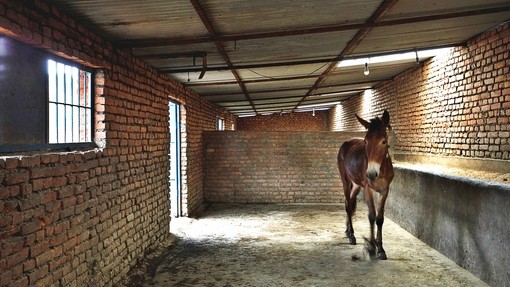
Dr Elisabeth Svendsen MBE founded The Donkey Sanctuary to strive towards a better world for donkeys. We continue her mission to improve the lives of donkeys every day.
